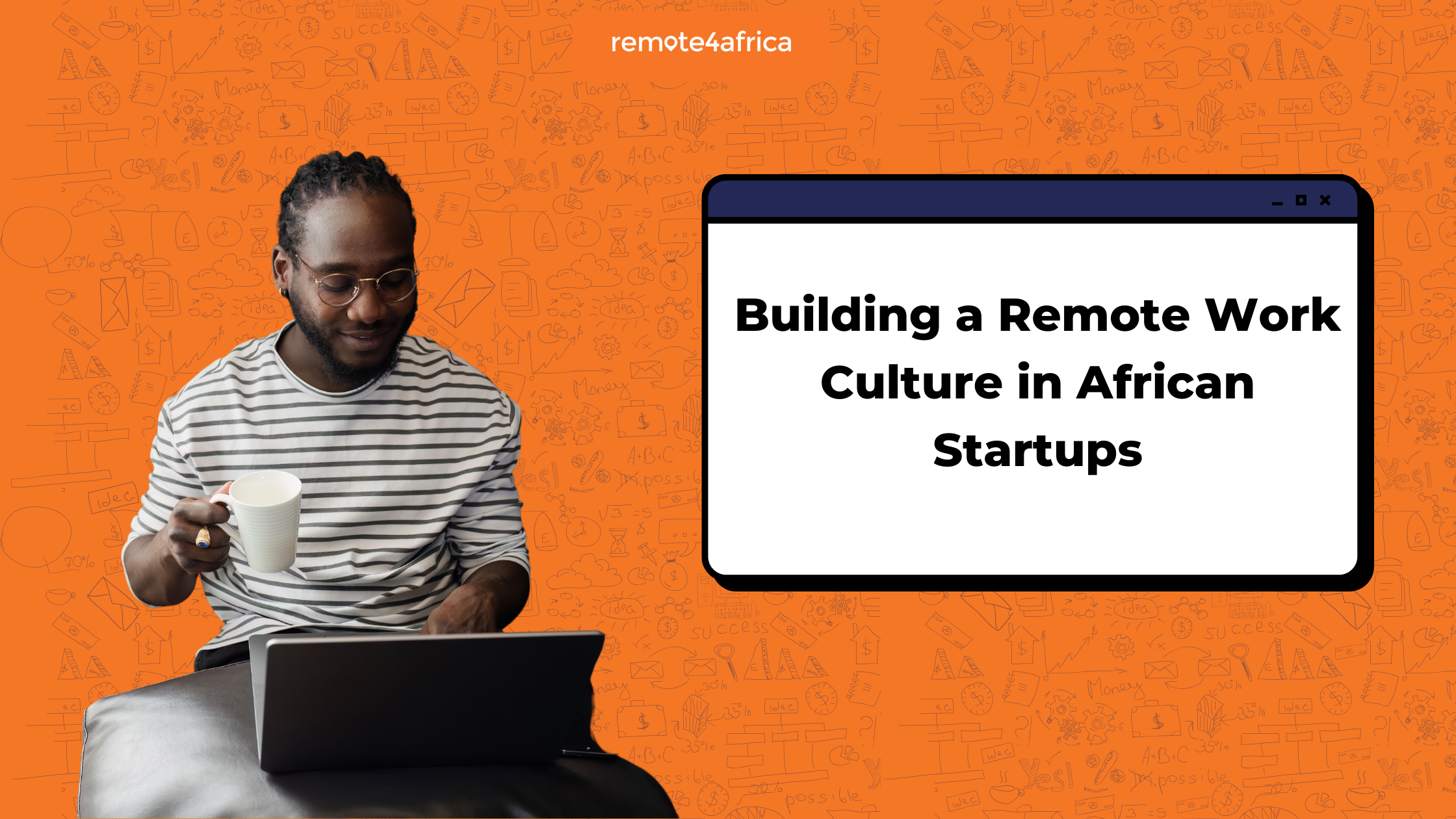Building a Remote Work Culture in African Startups

Remote work culture is fast becoming part of a lot of companies in the world, who now run either fully remotely or a hybrid workscape. As an African entrepreneur looking to follow suit in building a strong remote workforce that is just as established as your counterparts in other parts of the world, there's a need for you to learn how to build a remote work culture.
Know that African startups are uniquely positioned to benefit from remote work. It allows you to tap into a diverse talent pool, save on costs, and provide your employees with flexibility.
In this article, you are going to learn the tips for building a remote work culture in your business.
How to build a remote work culture in African startups.
- Build a stable and effective communication channel.
Communication and effective collaboration are some of the biggest challenges of remote work. A physical work space allows you to pop into your colleague's office for clarification, but for remote work this is not possible. So you need a means of communication that would just be as prompt and seamless. Tools like Slack, Microsoft Teams, and Asana are great for effective communication for your remote workers, and regular check-ins should be encouraged to ensure a sense of connection is maintained among remote workers.
- Build a team of remote workers based on trust and flexibility.
A major advantage of remote work for workers is the flexibility, but this has to be built on a foundation of trust. As a new entrepreneur, you would be tempted to micromanage the team, but it is important to trust them to manage their own schedule as long as they deliver quality work on time. Set clear expectations for your remote staff and focus on the outcomes they deliver. Productivity should always be maintained, as that is how your startup can grow.
- Establish team bond and cohesion.
Lack of team bond can be a challenge with remote work due to its nature. However, there are virtual team-building activities that can be done to foster a sense of belonging among the remote staff. Organize virtual meetings where work would not be the focus but back and forth interaction among the team.
- Prepare for connectivity and technological challenges.
The Internet connectivity in Africa can be inconsistent; it is important to prepare for this. Aside from this, power outages are quite common in many areas. As a startup, it is important to be flexible and provide support to remote workers whenever they are faced with these issues.
- Leverage Africa's diversity and immense talent pool.
One of Africa's greatest strengths is the diversity and versatility it offers, and together with this is an immense pool of talented, innovative, and creative people. As a startup, you should seek out these people and give them the opportunity to work in an environment where they can express themselves and hone their skills.
Conclusion
Building a remote work culture in African startups requires an effective communication channel and a team of dedicated remote workers that have a thriving bond among them. There are challenges, of course, but this can be overcome with preparation and setting clear expectations and goals for the remote staff. There will always be room for improvement, and as long as you keep abreast of this, your startup will thrive with its remote work force.
